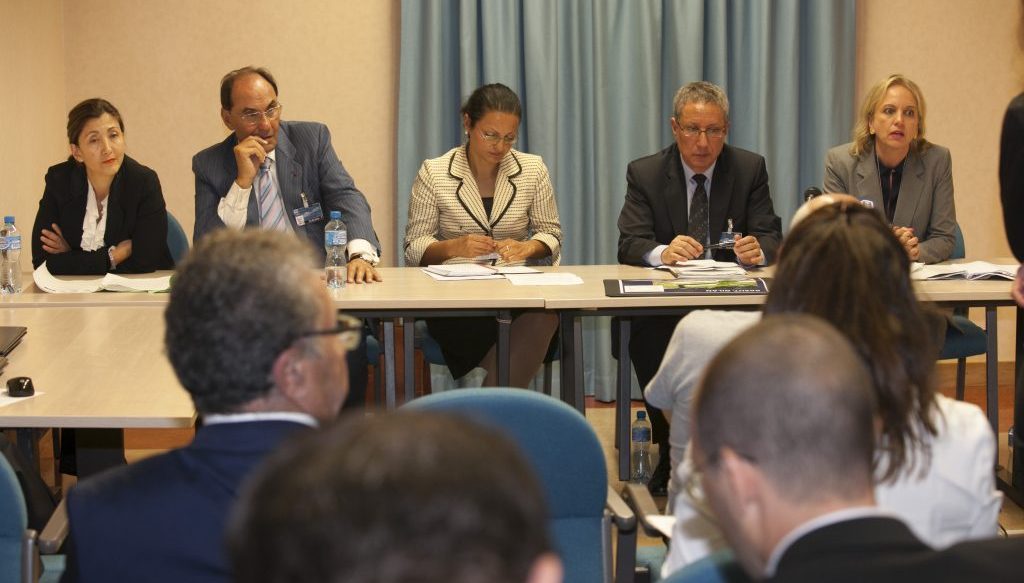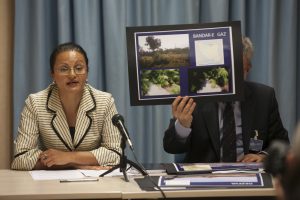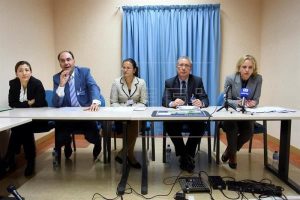JVMI Official Launch
Official Launch: "Justice For Victims Of 1988 Massacre In Iran" - Geneva, September 2016

The committee “Justice for Victims of 1988 Massacre in Iran” (JVMI) officially launched at a press conference in the Geneva headquarters of the United Nations on 21 September 2016. The JVMI is a not for profit centre for research and documentation recently established in London which operates internationally.

At the press conference announcing its formation, the JVMI unveiled some eight previously-secret mass graves in various parts of Iran where victims of the 1988 massacre of political prisoners were secretly buried.
The information included the exact locations and scale of the mass graves and in some cases video footage from the sites of the mass graves which had been collected in recent weeks by eye-witnesses inside Iran and sent to the committee in various forms. The veracity of the mass graves have been confirmed by a variety of sources.
The committee called on the UN to establish a Commission of Inquiry and bring the perpetrators of the 1988 massacre to justice.
The panellists included:
- Ingrid Betancourt, former presidential candidate for Columbia
- Tahar Boumedra, former chief of the Human Rights Office of the UN Assistance Mission for Iraq (UNAMI) and legal expert
- Kirsty Brimelow QC, Chairwoman of Bar Human Rights Committee of England & Wales
- Dr. Alejo Vidal-Quadras, former Vice-President of European Parliament (1999-2014) and President of the International Committee In Search of Justice (ISJ)
- Azadeh Zabeti, vice president of the Committee of Anglo-Iranian Lawyers (CAIL)

The JVMI’s launch conference, held at the UN’s Press Club, was attended by numerous international journalists and received widespread coverage.
The French news agency AFP reported that JVMI called for a UN probe into the 1988 massacres in Iran after the release of a decades-old audio tape shed fresh light on the alleged atrocities. Click HERE to read the full AFP report.
The Spanish news agency EFE quoted committee members as saying that more than 30,000 political prisoners were massacred in 1988 on the orders of Khomeini, Iran’s Supreme Leader at the time. Click HERE to read the full EFE report.
The Swiss news agency ATS wrote that the committee has urged both the UN Human Rights Council and the UN Special Rapporteur on Iran to investigate the massacre. Click HERE to read the full ATS report.
The Swiss daily Le Temps wrote that senior Iranian officials, including the current Justice Minister Mostafa Pour-Mohammadi, implemented Khomeini’s fatwa. The JVMI seeks their prosecution, the report added. Click HERE to read the full report by Le Temps.
There was further coverage of the launch press conference by the Swiss daily Tribune de Geneva, the European Pressphoto Agency (EPA), AFP TV, Saudi Arabia’s television station Al Ekhbariya, Britain’s Daily Mail, and the pan-Arab daily Asharq al-Awsat.
Click HERE for the text of remarks by Azadeh Zabeti at the conference.
JVMI, which is based in London, was recently formed by a group of human rights lawyers, political personalities, former UN officials, former government officials and former Iranian political prisoners.

Background
In the summer of 1988, based on a fatwa decreed by the Islamic Republic’s founder Ayatollah Khomeini, some 30,000 political prisoners were massacred in the space of a few months and buried secretly in mass graves. In the nearly-three decades since then, Tehran has tried to keep the massacre a secret.
In August 2016 an audio file of Khomeini’s former heir, Ayatollah Hossein-Ali Montazeri, about the massacre surfaced for the first time triggering a crisis in Tehran. In the audio recording, dated 15 August 1988, Montazeri can be heard criticizing members of Tehran’s “Death Commission” which were appointed by Khomeini.
According to newly-exposed information, dozens of the top perpetrators of the massacre are currently holding key positions within the regime.
The massacre and the questions that surround it have turned into a nationwide social matter and the primary topic of internal discussions and conflict within the factions of the regime, forcing many top officials of the regime to take a position on it.
